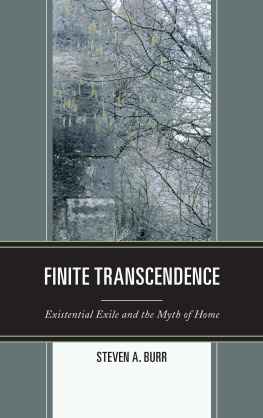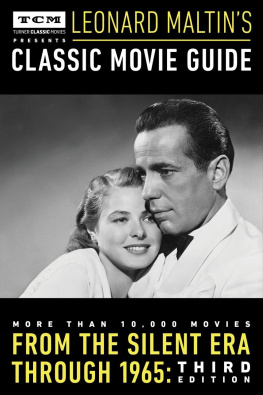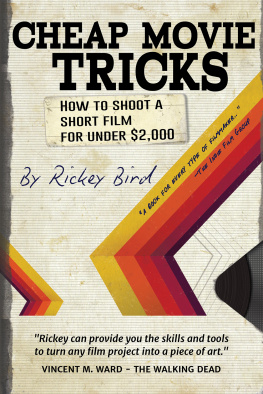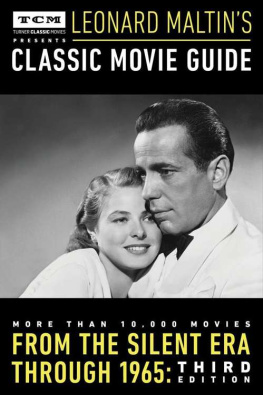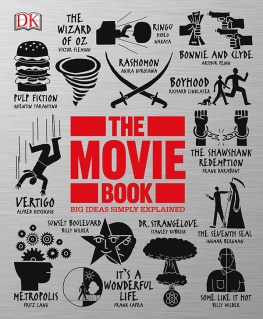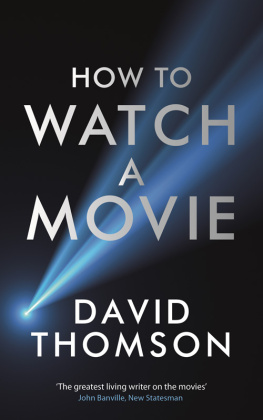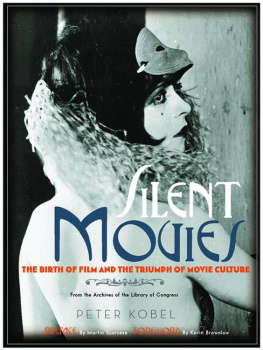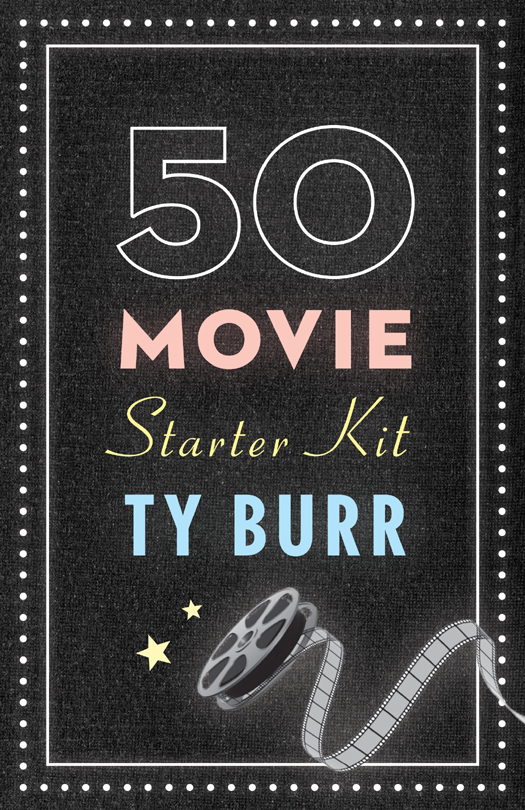The 50 Movie Starter Kit
What You Need to Know If You Want to Know What Youre Talking About
Ty Burr

Anchor Books
A Division of Random House, Inc.
New York
AN ANCHOR EBOOK ORIGINAL, OCTOBER 2012
Copyright 2012 by Ty Burr
All rights reserved. Published in the United States by Anchor Books, a division of Random House, Inc., New York, and in Canada by Random House of Canada Limited, Toronto.
Anchor Books and colophon are registered trademarks of Random House, Inc.
eISBN: 978-0-345-80494-5
Cover design by Linda Huang
www.anchorbooks.com
v3.1
Contents
Introduction
This book is not meant for people who already know a lot about movies. Its for people who have just realized they love movies and suddenly want to know more.
Maybe youve seen one of the more challenging commercial films of recent yearsInception, Hugo, Drive, The Social Networkand it has hit you that the medium has more to offer than superheroes and drunken high school kids. Maybe youve caught a classic on cable TV or in a classroom and it spoke to you much more loudly than you ever thought it could. Perhaps it was one of the cult films of the past two decadesAdaptation? Amlie? Spirited Away? Or maybe all your friends are gaga for Avatar and The Avengers, and thats fine with you except that you cant help feeling a little bored. Maybe you wonder what a movie that isnt a digitized 3-D theme park looks like.
Heres something to consider: the cinema has been around for well over a century now. Eras and industries and fads have come and gone, each with a handful of lasting works and a lot of forgettable junk. If youre drawn to the movies as something more than a way to waste a few hours with friendsif they tell stories that enchant you, bother you, make you laugh, or mess with your headthere is so much out there that you may not have heard about yet. Thats where this book is meant to help. Think of it as a starter kit: fifty films that, taken as a whole, provide a decent overview of what the medium has done and can do, and that need to be taken in if youre at all serious about loving movies.
Is this a history lesson? In part, sure; it has to be. To really be conversant in film, you do have to have seen The Searchers and City Lights, Pulp Fiction and Persona. You do need to know about the French New Wave in general and Jean-Luc Godard in particular, if only because watching Pierrot le Fou (1965) will make you appreciate Wes Andersons Moonrise Kingdom (2012) that much more. You should be familiar with Japanese samurai classics, 1950s sci-fi, new Romanian cinema, silent comedy, Alfred Hitchcock, the Coen brothers, Hollywood musicals, and Italian spaghetti westernsnot because you want to sound like a know-it-all but because all of these (and more) offer endless pleasures and puzzlements while widening your idea of whats out there in life. Movies are an amazing medium simply because each one is a potential window onto a world you yourself might never have imagined. They enrich us with possibilities and dare us to carry them through.
If it sounds like Im writing this with youngish readers in mindpeople from the ages of, say, fifteen to thirtyI suppose I am, although anyone is invited to play. My direct personal experience from years of writing movie reviews and teaching college film classes is that the most recent generations are the ones most in need of friendly guidance. They just dont know, not because the choices are so limited but, ironically, because theyre almost infinite. To grow up a film lover in the twenty-first century is to be both blessed and cursed. You may not think so to look at the box office listings, but we live in a golden age for watching movies: everything is out there, or seems to be. Thanks to the technological evolution of media delivery systemsfrom video to DVD to Blu-ray to streaming technologythe riches of a full century of movie history are at our fingertips. No, you can no longer watch Gone With the Wind or Rebel Without a Cause in an old-style movie palace, but you can watch them on a fifty-two-inch LCD screen with surround sound. More to the point, you can watch them, period. Before home video and the Internet, that possibility did not exist.
Thats the blessing. The curse is that so few ways exist to help make sense of this avalanche of choices. Back in the video store days, there was a common neurological effect that I liked to call brain blurthe experience of casting your eyes along a row of videotape or DVD case spines and spacing out after the fifteenth title. That same sensation now applies to our cable TV schedules and On Demand menus, our Netflix queues and iTunes choices. The human brain is not meant to hold that many options at once. This is why the more channels we have, the less anything actually seems to be on.
When I was growing up a film-besotted teenager in the 1970sI caught the bug watching a late-night airing of the Marx Brothers in Duck Soup ()there were books that led me through the valley of the shadow of film history and shone a light on the movies that matter. There was one in particular whose title and author Ive long since forgotten, a big picture book with passionate essays about films Id heard about, like Lawrence of Arabia and Casablanca, and alluring unknown prospects like Weekend (another Godard) and Au Hasard Balthazar. Through the urgency of the writing and the immediacy of the photos, I understood that these were movies with which Id have to grapple if I wanted to take my unholy new love of cinema any further. I wish I could remember who wrote that book, because Id like to thank him.
What Ive tried to do here, in a way, is replicate the experience of that book and those movies for the young film lover I no longer am. Theres a gap that needs to be filled. Great Movie tomes still exist, obviously, with the legendary critic Roger Ebert doing his best to spread the news, both in three paperbacks of that title and online. But fewer and fewer people read books, Im afraid, and the chances of a movie neophyte stumbling upon a bound movie reference to set him- or herself on fire are much smaller than they were even a decade ago.
The Internet? A godsend and a hellhole of facts, factoids, opinions, and flame wars. The Internet Movie Database (www.imdb.com) is an invaluable source of information, and the sites celebrated user reviews are often knowledgeable and sometimes well written; theyre most welcome as a way to share the excitement or scorn you feel for a particular movie with people as fanatical as yourself. (The IMDb message boards, by contrast, are useful only until someone calls someone else a Nazi or a Michael Bay fan, which is usually by the third post.) More useful is the sites Top 250, a changing but generally steady ranking of great movies voted on by registered IMDb users: it contains many, if not most, of the films mentioned in this book but is marred, in my opinion, by the fan-ism of modern entertainment culture that judges epic fantasy series like The Lord of the Rings, Star Wars, and The Dark Knight to be part of the pantheon when they are, at best, brilliant toys.
(Oh, go ahead and bitch all you want; I firmly believe that the very best filmsthe ones that truly last after all those cutting-edge special effects have become datedcan dazzle an audience while leading it to a greater engagement with reality rather than away from it. Escapism is what the film industry has sold us since its beginnings and what it still profits by, and there aint nothing wrong with that when the craft is true and the stories are good. See the entries on




